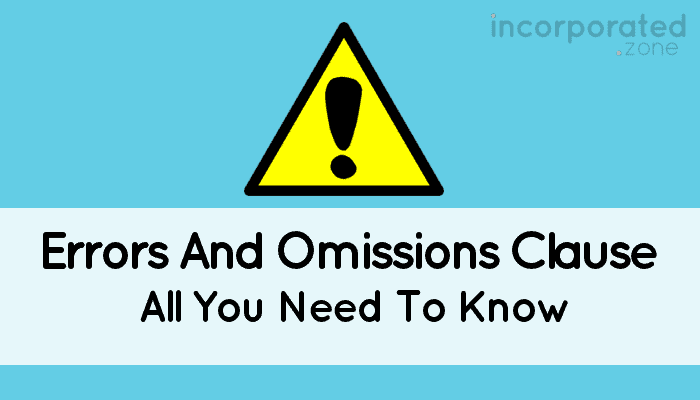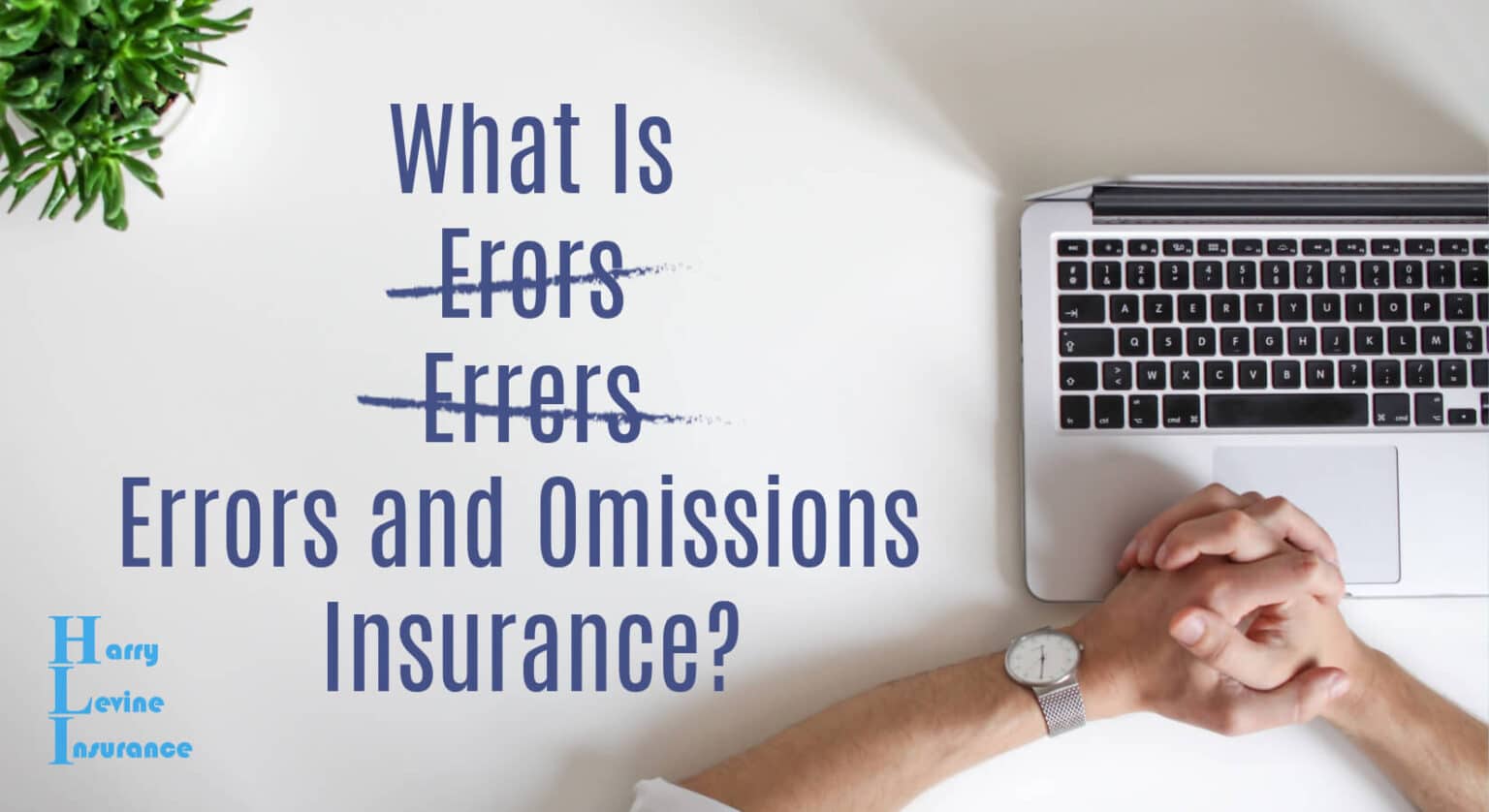Errors and omissions insurance for bookkeepers is a crucial safeguard against potential financial risks and legal liabilities. Dive into the details of this indispensable coverage as we explore its significance and benefits.
Explore the various aspects of errors and omissions insurance for bookkeepers, from coverage details to real-life examples showcasing its importance in protecting bookkeepers’ interests.
Overview of Errors and Omissions Insurance for Bookkeepers
Errors and omissions insurance for bookkeepers is a type of professional liability insurance that provides coverage in case a bookkeeper makes a mistake or fails to perform a service, resulting in financial loss for their clients. This insurance is essential for bookkeepers to protect themselves from potential lawsuits and claims.
Purpose of Errors and Omissions Insurance
Errors and omissions insurance helps bookkeepers cover legal expenses and damages resulting from claims of negligence, errors, or omissions in their work. For example, if a bookkeeper fails to file a client’s taxes on time, resulting in penalties and financial loss for the client, errors and omissions insurance can help cover the costs of any resulting legal claims.
Coverage Included in Errors and Omissions Insurance
- Legal Defense Costs: Errors and omissions insurance typically covers the costs of hiring legal representation to defend against claims of negligence or errors.
- Settlements and Judgments: This insurance can also cover any settlements or judgments that the bookkeeper may be required to pay if found liable for a client’s financial losses.
- Errors in Financial Statements: Coverage may extend to errors in financial statements or reports prepared by the bookkeeper that lead to financial harm for the client.
- Professional Negligence: Errors and omissions insurance can provide protection in cases where the bookkeeper is accused of professional negligence or failing to meet industry standards.
Importance of Errors and Omissions Insurance

Errors and Omissions Insurance is crucial for bookkeepers as it provides protection in cases of negligence claims or mistakes made in their professional services. This type of insurance can help cover legal fees, settlements, or judgments that may arise from errors or omissions in their work.
Comparison with General Liability Insurance
While General Liability Insurance covers bodily injury, property damage, and advertising injury claims, Errors and Omissions Insurance specifically focuses on claims related to professional services. Bookkeepers deal with sensitive financial information, making errors and omissions insurance tailored to their specific risks.
Real-life Scenarios
- In a scenario where a bookkeeper mistakenly entered the wrong financial data, leading to significant losses for a client, Errors and Omissions Insurance helped cover the costs of rectifying the error and compensating the client.
- Another example is when a bookkeeper failed to file important tax documents on time, resulting in penalties for the client. Errors and Omissions Insurance stepped in to cover the financial repercussions of the mistake.
- Additionally, in a situation where a bookkeeper provided inaccurate financial advice that led to a client’s financial hardship, Errors and Omissions Insurance protected the bookkeeper from potential lawsuits and financial losses.
Common Errors Covered by Errors and Omissions Insurance
Errors and Omissions Insurance for bookkeepers can provide coverage for a variety of common mistakes that can occur in the course of their work. These errors can have significant financial implications and may even lead to lawsuits if not properly addressed.
1. Data Entry Mistakes
One of the most common errors bookkeepers make is data entry mistakes, such as entering incorrect numbers or omitting important information. These mistakes can lead to inaccuracies in financial records, which can have a domino effect on a company’s finances and decision-making process.
2. Missed Deadlines
Bookkeepers are often responsible for meeting important deadlines for tax filings, payroll processing, and financial reporting. Missing these deadlines can result in penalties and fines for the company, which can be costly and damaging to their reputation.
3. Misclassification of Expenses, Errors and omissions insurance for bookkeepers
Misclassifying expenses can result in incorrect financial statements, which can mislead stakeholders and investors. This can lead to legal disputes and financial losses for the company, making it essential for bookkeepers to have errors and omissions insurance to protect themselves.
Factors to Consider When Choosing Errors and Omissions Insurance

When selecting an errors and omissions insurance policy, bookkeepers should carefully consider various factors to ensure they are adequately covered in case of any professional liability claims. Here are some key factors to keep in mind:
Coverage Options
- Bookkeepers should assess the different coverage options available in the market to determine which policy best suits their specific needs. Some policies may offer broader coverage while others may be more specialized.
- Consider if the policy covers defense costs, settlements, judgements, and other expenses related to a claim. It’s essential to have comprehensive coverage to protect against potential financial losses.
- Look for policies that include coverage for both negligence and errors in professional services to ensure full protection.
Cost Implications
- Bookkeepers should compare the costs of different errors and omissions insurance policies to find a balance between affordability and coverage. Keep in mind that cheaper policies may not always provide sufficient protection.
- Consider the deductible amount and how it affects the overall cost of the policy. A higher deductible may result in lower premiums but could mean higher out-of-pocket expenses in the event of a claim.
- Explore discounts or incentives offered by insurance providers to reduce the overall cost of the policy without compromising on coverage.
Final Wrap-Up

In conclusion, errors and omissions insurance for bookkeepers serves as a vital safety net in the ever-evolving landscape of professional services. Secure your peace of mind and financial stability with this essential coverage tailored for bookkeepers.
Essential Questionnaire: Errors And Omissions Insurance For Bookkeepers
What does errors and omissions insurance for bookkeepers cover?
Errors and omissions insurance typically covers financial losses resulting from professional mistakes, negligence, or failure to deliver services as promised.
How is errors and omissions insurance different from general liability insurance for bookkeepers?
Errors and omissions insurance focuses on professional mistakes and negligence, while general liability insurance covers bodily injury and property damage claims.
Can errors and omissions insurance protect bookkeepers from lawsuits?
Yes, errors and omissions insurance can provide legal defense coverage and financial protection in case bookkeepers face lawsuits due to professional errors.
Are all errors and mistakes made by bookkeepers covered under errors and omissions insurance?
Common errors like data entry mistakes, miscalculations, or misinterpretation of financial information are typically covered, but intentional fraud or criminal acts are usually excluded.
